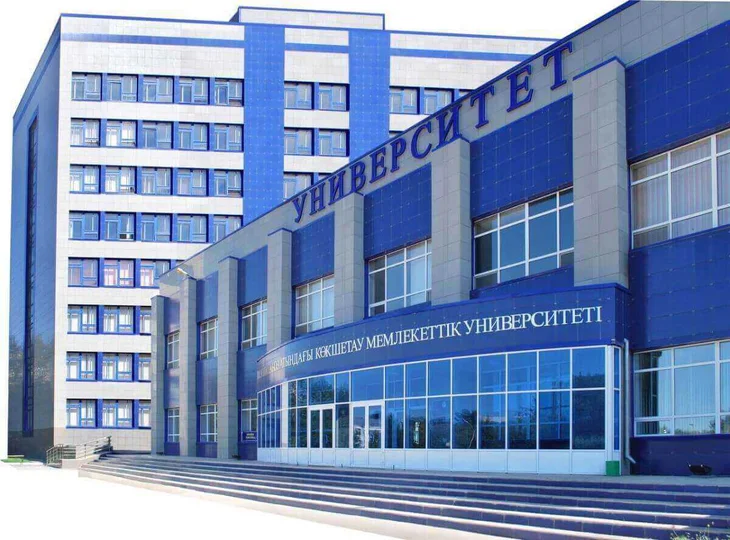Biotechnology by industry

Educational program code
6В05102
Language of instruction
Kazakh, Russian
Learning level
Undergraduate
Duration of study
4 year
Specialized subjects
Chemistry
Biology
Objectives of the educational program
Training of specialists with basic knowledge of theoretical and applied aspects of biotechnology, capable of developing and applying professional skills, with fundamental knowledge of chemistry, biology, engineering and other related fields, as well as professional competencies that allow a future biotechnologist to carry out technological processes in large-scale industrial biotechnological productions, in the field of healthcare, agriculture, food and chemical industry with skills to work on laboratory equipment.
- Academic writing
- Information and communication technologies (in English)
- Fermentation technology
- Sociology
- Inorganic and analytical chemistry
- Animal biotechnology
- Fundamentals of biotechnology
- Biotechnology facilities
- Fundamentals of biotechnological production
- Biochemistry
- Physical education
- pre-graduate practice
- General and molecular genetics
- Selected Chapters of Higher Mathematics
- Kazakh/Russian
- Modern history of Kazakhstan
- Cultural studies
- Educational practice
- Educational practice 2
- Organic and bioorganic chemistry
- Introduction to Organic Chemistry
- Industrial biotechnology
- Production practice
- Plant biotechnology
- Psychology
- Political Science
- Technical Microbiology
- Philosophy
- Chemistry and physiology of water
- Fundamentals of chemical analysis
- Foreign language
- Biochemistry of food
- Feed yeast production technology
- Academic writing
- Processes and devices in biotechnology
- Use of plant tissue culture in biotechnology
- Engineering fundamentals of biotechnology
- Bioethanol production
- Genetic engineering
- Anatomy and physiology of animals
- Cultivation of animal tissue and production of stem cells
- Selected Chapters of Higher Mathematics
- Methods of isolation and purification of high-molecular compounds
- Leadership and youth policy
- Kazakh/Russian
- Cultivation of microorganisms
- Molecular biotechnology
- Cultivation and production of isolated plant cells
- Technology of production of organic acids and protein isolates
- Organic synthesis
- Fundamentals of law and anti-corruption culture
- Plant physiology
- Food biotechnology
- Standardization and certification of food products
- Fundamentals of life safety
- Methods of isolation and purification of low molecular weight compounds
- Physical colloidal chemistry
- Physical methods of chemical research
- Chemical synthesis
- Foreign language
- Shock science
- Ecology and sustainable development
- Fundamentals of Economics and Entrepreneurship
Learning outcomes and competencies
- Uses and applies knowledge of natural science disciplines professionally explains modern biotechnological processes in production, ensuring their high efficiency and safety;
- Develops and uses new biotechnological projects and devices in production, improves existing technological processes. applies the acquired knowledge, skills and abilities for the implementation and management of biotechnological processes; evaluates technical means and technologies taking into account the environmental consequences of their use; complies with safety regulations, industrial sanitation, fire safety and labor protection.
- Applies and explains the basic methods and techniques of conducting experimental research in the professional field; is able to conduct and organize standard and certification tests of raw materials, finished products and technological processes.
- Interprets skills in solving analytical problems of an engineering type to create innovative biotechnological processes and products.
- Implements organizational and managerial work in a team, evaluates the quality of biotechnological products in accordance with the requirements of Kazakh and international standards; systematizes and summarizes the resource base of the enterprise.
- Applies broad knowledge of social, ethical and legal aspects of innovative engineering activities, competence in sustainable development issues;
- Improves intellectual and general cultural level and professional qualifications, is able to use basic knowledge in the field of microbiology, physiology, cell biology, biochemistry, molecular biology, in order to solve applied problems of industrial biotechnology.
- Classifies and analyzes knowledge about modern producers of biologically active substances used in various industries and methods of their selection; Modifies methods of cultivation of microorganisms on various substrates in order to obtain biomass and/or cellular metabolites in the implementation of biotechnological productions.
- Possesses biotechnological skills in the development of source material for breeding in the field of crop production and animal husbandry, possesses genetic engineering technologies for obtaining genetically modified organisms and products of their processing.
- Knows the safety techniques when handling objects of biotechnological production, taking into account their properties, and the risks in obtaining the initial products according to the biotechnological scheme of obtaining. Has the skills of organizing, planning and implementing the production process.